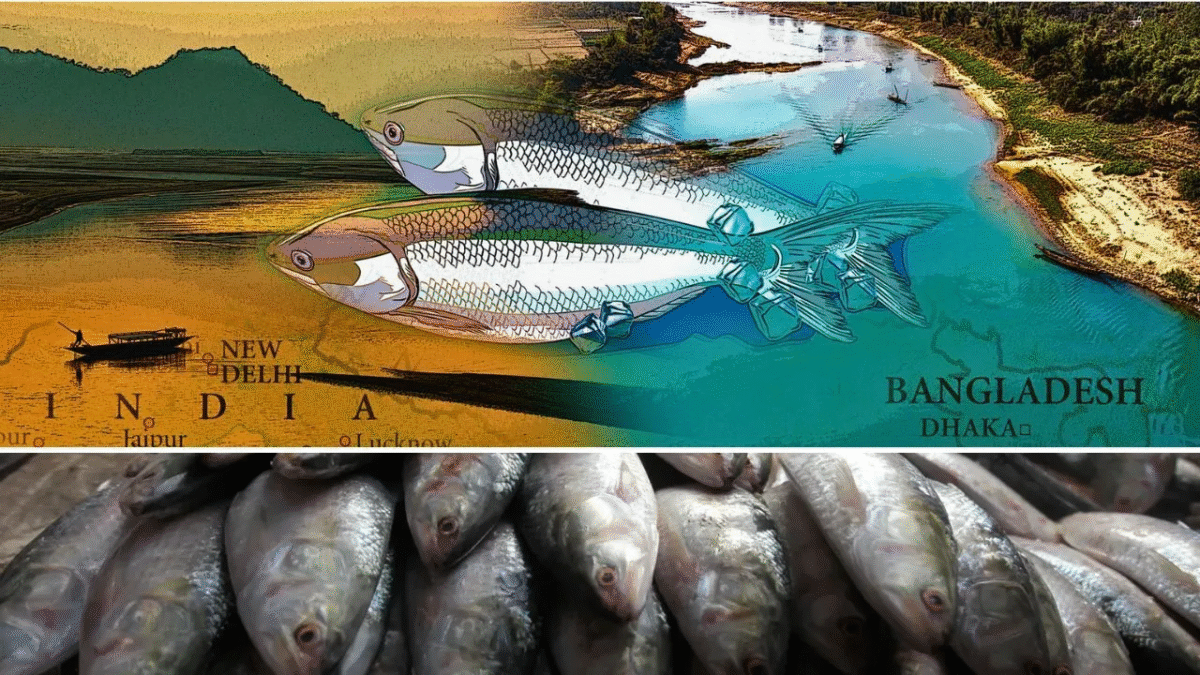Dhaka: These days, people’s interest in world politics is increasing, but serious articles on this subject can be difficult for the readers to understand and boring in reading. Instead, people may enjoy reading some fun stories about world politics and leaders around the world. Through this, the pleasure of this subject can also increase. That is why we are starting this series that provides such interesting stories.
A few months ago, the change of power in Bangladesh, Prime Minister Sheikh Hasina’s departure to India, and the acting government chief Mohammad Munus’s recent visit to China and his thoughtful statements, all of which have again brought the India-Bangladesh relations into the limelight. In this regard, it will be interesting to see how much a small fish plays a big role in relations between the two countries. Hilia or Ilish fish holds great importance in the lives of people of both West Bengal and Bangladesh. This fish is eaten on both sides of the border with the same taste. Hilsa dishes must be eaten during Durga Puja and other festivals.
On that occasion, its demand increases in the markets on both sides and it has a huge business. Therefore, its importance is very high in the economy of both sides. However, in the last few years, the issue of five Hilsa fishes has become entangled in India-Bangladesh relations. Politics got hot on both sides about this. The reason for this was the division of water of rivers like Ganga and Teesta flowing from India to Bangladesh. Apart from this, Farakka Dam built by India. Since the demand for Hilsa in the market is very high, it is also being caught in large quantities in West Bengal and Changla country. This affected their fertility and reduced their fertility. In addition, there was another reason for Bangladesh.
Bangladesh alone accounts for 70 percent of the world’s total Hilsa exports, and countries like Myanmar also export. In India, apart from Bengal, Hilsa is also grown to some extent in Gujarat and Maharashtra. But Bangladeshi Hilsa is considered the best. Just as it affects social affairs and economy, it is also affecting politics. Sheikh Hasina has so far used it effectively.
Hilsa fish come from the sea to the river to lay their eggs. To do this, they travel upwards through the mouth of rivers in India from the Bay of Bengal, laying eggs, and then the children coming out of the eggs go back to the sea. But Bangladesh claimed that Hilsa fish is facing difficulties in its journey due to the dams built by India on rivers on the way. This issue was being discussed in both countries. An essay was written to prevent excessive fishing. Fish are small in the months of March-April. Caught affects the next generation. Therefore, fishing lower than 500 grams was banned during this period.
Bangladesh also banned clove exports. Sheikh Hasina presented a unique idea to draw attention to this issue. He sent the then Chief Minister of West Bengal Jyoti Vasu and later Mamata Banerjee as a Hilsa fish gift. The poem of Hasina’s visit to India states that India has lifted the export ban on Hilsa fish and some fish have been sent to the Indian market. Similar steps were taken to express goodwill during festivals like Durga Puja. Not only this, on some occasions during his visit to India, Hasina also cooked rice in Rashtrapati Bhavan and feed Indians. His action became famous as Hillside Diplomacy. Bangladesh says that domestic Hilsa fish prices are rising rapidly due to exports to India and other places. Therefore, common Bangladeshi citizens are not able to buy Hilsa. Last year, the price of one and a half kg of Hilsa in Bangladesh reached 1800 percent. Therefore exports will have to be banned.
The post Hilsa Diplomacy; Bangladesh exports alone 70% first appeared on News India Live | Breaking India News, The Indian Headline, India Express News, Fast India News.
